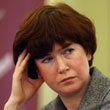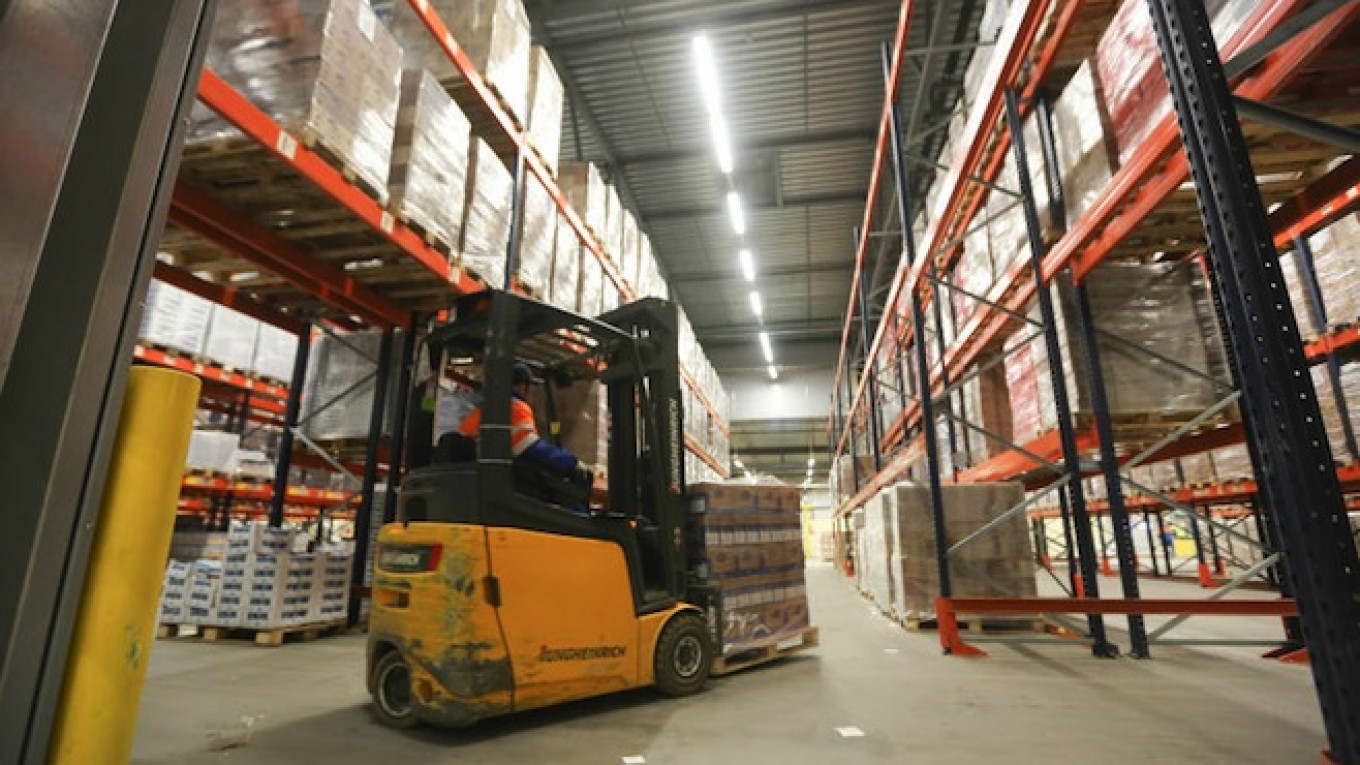
Natalya Orlova
There was meant to be a silver lining to the devaluation of the ruble — that the rising cost of imports would stimulate local production. So Russian economists had looked forward to seeing figures on the structure of last year's economic output to see whether an increase had happened.
One sector in particular is seen as a litmus test of the potential rebranding of the Russian economy away from oil dependency to greater diversification — the agricultural sector, which has been helped not only by the weaker ruble but by direct bans on imports from a number of Western countries.
Unfortunately, the hoped-for change did not happen. Last year, according to the state statistics agency Rosstat, the agricultural sector grew by only 3.1 percent. Its share of GDP barely budged, rising slightly to 3.5 percent.
Russian imports did drop — by 42 percent in last two years — but food imports fell slower, by only 40 percent.
In a recent analysis, the Central Bank confirmed the negative view. On the face of it, the bank found proof of gradual import substitution — saying the share of imports in local consumer purchases had decreased to 38 percent from 43-44 percent over 2012-2013.
This is actually bad news: It means that even the halving in the value of the ruble has failed to cause a structural shift in the real sector.
One reason for this is that retailers have passed much more of the costs of ruble devaluation than expected on to consumers, rather than absorbing them through tighter margins, implying high market power even in the face of declining demand.
Another reason is that producers have few alternatives to imports. Polls conducted by the Gaidar Institute in 2014-2015 found that some 60 percent of goods makers said there were simply no local substitutes for the products they need for production. And even if they do exist, low quality can be an obstacle.
Seventy percent of Russian companies use foreign inputs according to the World Bank. Considering the lack of local alternatives, it is unlikely that growth can outstrip expectations.
Also, insufficient investment is a bottleneck for the localization strategy. Investment has been declining since mid-2013 and fell by 7.6 percent last year. Recovery is unlikely: In the past, investment has been driven by rising household incomes, but those incomes are now falling.
The failure of import substitution has big-picture implications. The current account surplus, projected at 3.5 percent of GDP this year, is vulnerable. If the ruble strengthens thanks to a recovery in oil prices or an end to sanctions, this would simply generate a commensurate return of imports, driven by the recovery of the population's purchasing power in foreign currency.
To us, this is the key risk scenario for Russia. Though the market is worried about a continuing decline in oil prices, their sharp recovery would do more damage. An increase in oil prices to $80-90 per barrel would put the ruble's fair value at 45-50 to the dollar, neutralizing the positive effect of previous depreciation.
Another implication is that lack of import substitution confirms the high risk of economic stagnation. High inflation over the last two years has caused the real value of Russians' incomes to fall. The failure to adjust the GDP structure toward increased local production means the government will have to compensate for those losses.
Thus, it is hard to believe the Finance Ministry will be able to avoid increasing pensions, social payments and public sector salaries. These currently total 21 percent of economic output and include 40 million pensioners and 18 million public sector employees. GDP structure had not significantly changed, and this is bad news for future budget policy.
Natalya Orlova is the chief economist of Alfa-Bank, head of Alfa-Bank Macro Insights.
A Message from The Moscow Times:
Dear readers,
We are facing unprecedented challenges. Russia's Prosecutor General's Office has designated The Moscow Times as an "undesirable" organization, criminalizing our work and putting our staff at risk of prosecution. This follows our earlier unjust labeling as a "foreign agent."
These actions are direct attempts to silence independent journalism in Russia. The authorities claim our work "discredits the decisions of the Russian leadership." We see things differently: we strive to provide accurate, unbiased reporting on Russia.
We, the journalists of The Moscow Times, refuse to be silenced. But to continue our work, we need your help.
Your support, no matter how small, makes a world of difference. If you can, please support us monthly starting from just $2. It's quick to set up, and every contribution makes a significant impact.
By supporting The Moscow Times, you're defending open, independent journalism in the face of repression. Thank you for standing with us.
Remind me later.






